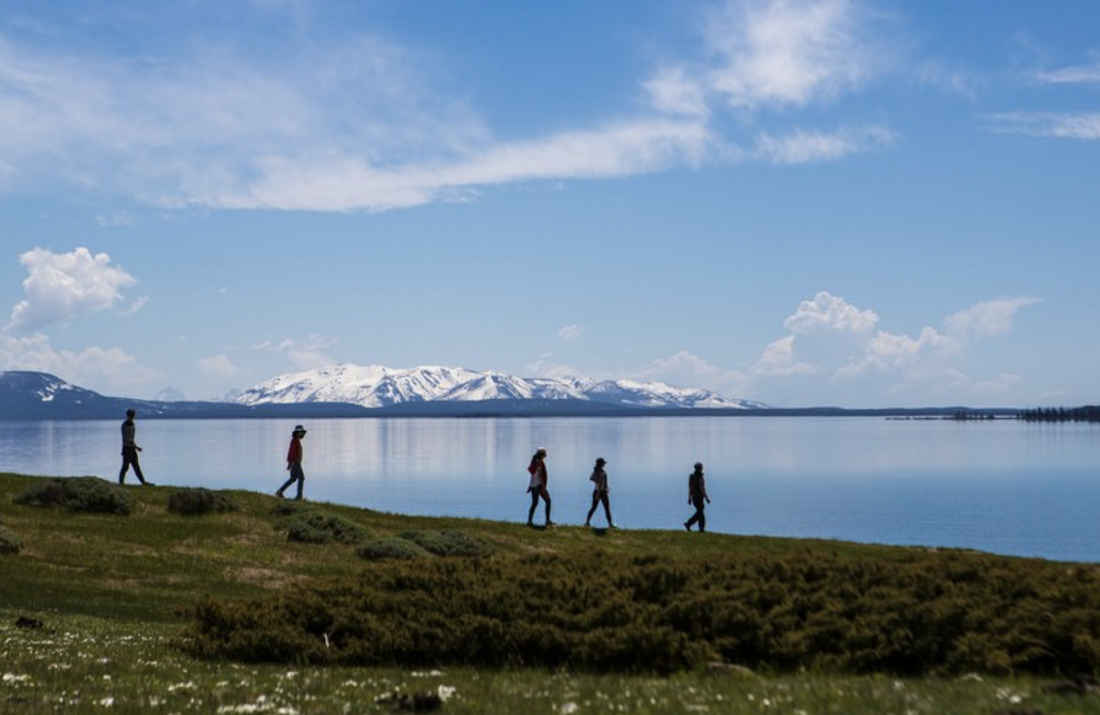
In August, when President Donald Trump signed into passage the Great American Outdoors Act, Democrats warned that he was only carrying out so as a political favor for Colorado’s Cory Gardner and Montana’s Steve Daines, two susceptible Western Republican senators who co-sponsored it in an try to retain their seats in the November election. (Gardner dropped his bid for re-election.)
What ever Trump’s motives, the bipartisan invoice was a huge victory for conservation, permanently funding the Land and Water Conservation Fund at $900 million each year and building a separate pot of dollars, up to $9.5 billion, to be used for maintenance at national parks and other general public lands about 5 several years. Nonetheless it was a surprising shift for the Trump administration: Prior to saying Trump’s guidance, his administration had beforehand advised chopping the LWCF’s spending budget by 97% in the 2021 fiscal calendar year.
Environmental teams are calling on Bernhardt and the Trump administration to adhere to the framework laid out in the preliminary laws.
But now that Trump’s term is nearing its conclusion, the law’s implementation is coming into target immediately after Inside Secretary David Bernhardt issued an order last week laying out how the Land and Water Conservation Fund will be managed. The fund has two independent targets: One is to give funding to states for their individual recreation and conservation priorities, and the other is to allow public-lands businesses to make land acquisitions, between other points.
In a considerable departure from the way the fund has been allocated in the earlier, states and municipalities will now be essential to indication off on these federal land transfers, which could make it hard for businesses like the Nationwide Park Support or Bureau of Land Management to receive land from personal parties. For example, if the federal governing administration required to use LWCF money to get land from a residence operator with parcels in a countrywide forest, a point out governor or county board could conceivably block the transaction, stated Randi Spivak, community-lands application director for the Heart for Biological Variety.
Several environmental teams, such as the Center for Organic Variety and the Mountain Pact, a coalition centered on resilience in intermountain communities, viewed the go as being anti-general public lands and unfaithful to the spirit of the regulation that was passed. In an Inside Department assertion, even so, Bernhardt defended the improvements as a way to give states much more authority over the purchase of federal land. “These steps guarantee land acquisitions will maximize recreation options, increase conservation benefits and offer versatility to our companions in states and regional communities to assure this investment is managed and allocated in the most effective feasible way.”
This tactic of operating around existing environmental guidelines by only furnishing new guidance in excess of their implementation has been tried out in advance of. Very last January, the Trump administration made use of the similar tactic to impact the scope and breadth of a bedrock environmental legislation — the Countrywide Environmental Coverage Act — by modifying how it will be applied in the future.
But all of this latest drama all over NEPA and the Land and Drinking water Conservation Fund could sum to nothing immediately after all, because a Joseph R. Biden administration will have the energy to reverse class, either by similar govt (or secretarial) orders, or by rewriting the restrictions. If Democrats select up a greater part in the Senate — a possibility that hinges on the Senate runoff races in Georgia) — Congress also could engage in a job via the Congressional Review Act, which allows it to overturn policies produced by federal agencies.
Even now, even as they appear ahead to the changing of the guard, environmental groups are calling on Bernhardt and the Trump administration to stick to the framework laid out in the original laws. Tracy Stone-Manning of the Countrywide Wildlife Federation instructed E&E News that her organization “look(ed) ahead to operating with a new secretary of the Inside to repair this order so the conservation plan can reach its complete probable.”
This article initially appeared on November 23 at Higher State Information.
Photograph: Luna Anna Archey/Substantial Nation Information
